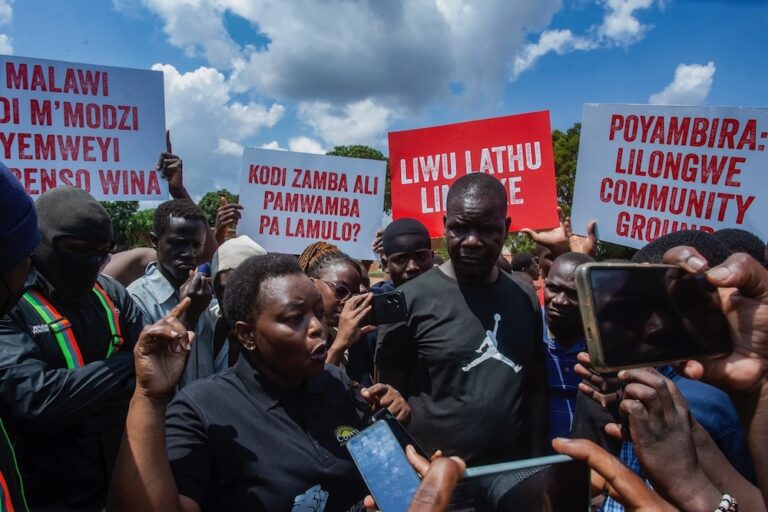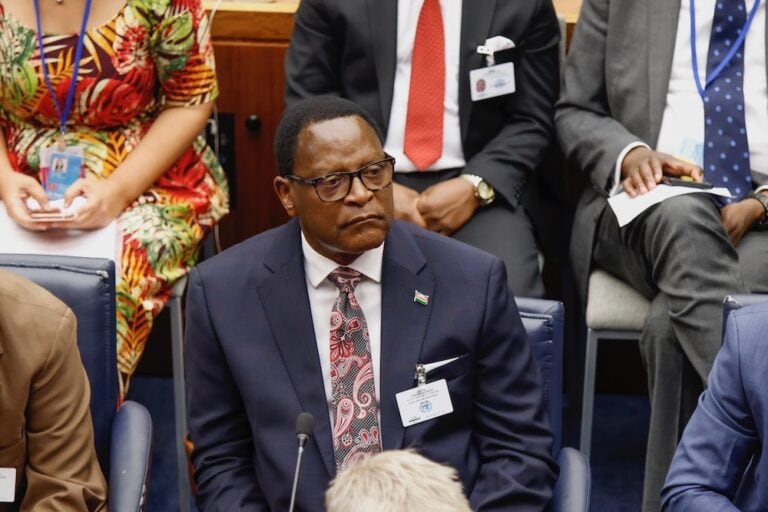(MISA/IFEX) – One of Malawi’s major donors, the European Union (EU), has expressed concern over delays to enact the draft Communications Bill, as well as other bills considered crucial for the development of democracy. The EU is especially concerned that President Bakili Muluzi’s government, which was swept to power in May 1994 – after promising […]
(MISA/IFEX) – One of Malawi’s major donors, the European Union (EU), has
expressed concern over delays to enact the draft Communications Bill, as
well as other bills considered crucial for the development of democracy. The
EU is especially concerned that President Bakili Muluzi’s government, which
was swept to power in May 1994 – after promising the country’s more than 11
million inhabitants that they would uphold tenets of good governance and
democracy – has not yet enacted such bills as the Local Government Elections
Bill, the Electoral Commission Amendment Bill and the Communications Bill.
Baldwin Zimmer, head of the EU delegation to Malawi, said at a recent
ceremony marking European Day, that bills which are central and cardinal to
the consolidation of democracy in Malawi seem not to be considered crucial
by parliament. Zimmer said that the above-named bills are necessary
requirements for the implementation of certain donor-funded projects. He
hoped that parliament would consider passing the bills when it meets in the
next two weeks.
Western donor nations that form the Paris Club froze aid to Malawi in 1991,
as a means of forcing the former Malawi Congress Party (MCP) regime, led by
the late dictator Hastings Kamuzu Banda, to accept multiparty democracy.
This paved the way for the 17 May 1994 elections, which brought incumbent
Bakili Muluzi to power with the United Democractic Front (UDF).
Despite winning on a multiparty, democratic ticket, the Muluzi
administration has rendered a deaf ear to cries for reform of dictatorial
laws put in place by the previous regime. MISA-Malawi, joined by a large
group of human rights non-governmental organisations, embarked last year on
a crusade to repeal the 1991 Malawi Broadcasting Corporation (MBC) Act,
which culminated in the drafting of a comprehensive Communications Bill by
the government. This draft bill encompasses the MBC Act.
Responding to Zimmer’s concerns, the leader of the UDF’s parliamentary
caucus, Edward Bwanali, assured the EU delegate that parliament would pass
the bills in question when it resumed sitting in Zomba (in southern Malawi),
on 26 May 1998.
Bwanali’s opposition counterpart, MCP President Gwanda Chakuamba, said he
appreciated Zimmer’s concerns and hoped the government would take them
seriously.


